- Cocaine
- Methamphetamine (Crystal Meth)
A stimulant is a drug that speeds up the body’s activities. It increases heart rate, breathing rate, and blood pressure. Stimulants can also make people feel excited and energetic. There are both legal and illegal forms of stimulants. Some of the more common legal forms of stimulants are caffeine and nicotine. Illegal forms of stimulants include:
When prescribed by a doctor, stimulants can help with medical conditions.
For example, they can be used as a temporary treatment for obesity. They are also prescribed to treat attention-deficit hyperactivity disorder (ADHD) and narcolepsy (a condition that makes people feel extremely sleepy). Stimulants increase alertness and concentration in these conditions; however, prolonged use of stimulants does not improve ADHD or narcolepsy symptoms.
Even though some forms of stimulants are legal, they can still be abused. Legal stimulants that are commonly abused include:
Stimulant abuse is more common than you may think. According to the National Institute on Drug Abuse (NIDA), an estimated 31 million people ages 12 and older used stimulants in 2015, a number that has continued to rise since. This number includes both legal and illegal forms of stimulants. The people who are most at risk of abusing stimulants are young adults. One study found that the rate of stimulant use disorder in 18- to 29-year-olds is higher than all other age groups when compared by drug, gender, and ethnicity/race. People who abuse these drugs tend to be male; however, there has been an increase in women using stimulants.
Using illegal stimulants like cocaine, meth, and MDMA can radically affect your long-term health.
Symptoms of stimulant abuse disorder include:
If you are experiencing any of these symptoms, you should seek help from a medical professional. To aid in making your diagnosis, your doctor will ask about your medical history and perform a physical exam. They may also order blood or urine tests to look for traces of stimulants in your system.
Inpatient rehab, also known as residential treatment, is when a patient stays at a rehabilitative recovery center to receive treatment for stimulant addiction or other substance abuse disorders. NOLA Detox’s program is designed for 30-days, including the initial medical supervised period of detoxing. Services patients can expect to include help detoxing and multiple forms of therapy.
Therapy can help you get to the root of your addiction and discover healthy coping skills. Cognitive-behavioral therapy can help you change the thoughts and behaviors that contribute to your addiction, and family therapy can help you repair your relationships with loved ones.
Outpatient rehab is when you attend therapy sessions, receive help detoxing, and undergo physical examinations at a facility but return home afterward. This is a good option if you can’t take time off from work or school to attend inpatient rehab.
Support groups are a great way to connect with others who can relate and give you the support and encouragement needed to stay sober.
Abusing stimulants can harm your relationships and health. After you have detoxed and begin to assimilate back into your regular life and routine, it’s essential to have a recovery plan. Things that can help you recover from stimulant addiction include:
On average, it takes about 12 weeks to recover from stimulant addiction. However, the length of time will vary depending on individual needs.
Treatment costs for stimulant addiction can vary depending on the program.
NOLA Detox and Recovery Center’s goal is to remove financial barriers, so patients can get the help they need.
Full and partial treatment scholarships are available at NOLA Detox and Recovery Center. NOLA Detox also accepts most insurances and offers payment plans.
While coffee doesn’t cause the same cravings as other stimulants, it can become a habit that affects your sleep and energy levels.
The professionals at NOLA Detox and Recovery Center have the knowledge and experience to help you recover from your stimulant addiction. Contact us at (504) 446-1111, or visit our campus today to get started.

Addiction is not your fault, but it is your responsibility. If you’re on our site, you’re likely facing a critical situation.
We are here for you and committed to providing the care you need.
Call or Text – available 24/7. Admissions by appointment only.